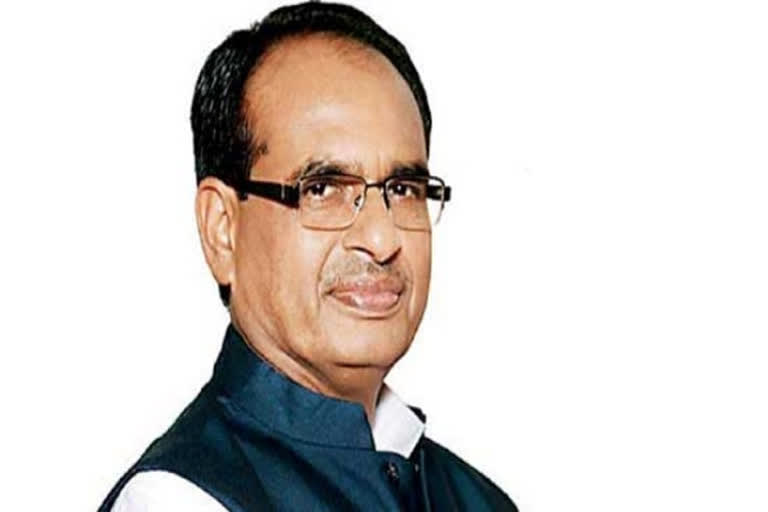New Delhi: On the night of March 23, while the rest of the country was focused on the corona virus crisis, BJP's Shivraj Singh Chouhan was sworn in as Chief Minister of Madhya Pradesh. Governor Lalji Tandon administered the oath for Chouhan in a small ceremony at Raj Bhavan.
On the next day, the Chief Minister proved his majority by winning the trust vote in the Assembly which the Congress legislators boycotted. After a gap of just 15 months, Chouhan is now back as the Chief Minister of Madhya Pradesh for a record fourth time and BJP has captured power in yet another state that it lost in the assembly elections.
The political crisis in Madhya Pradesh began when senior Congress leader Jyotiraditya Scindia quit the party on March 10. This was followed by the resignation of 22 MLAs of Congress including 6 ministers, seen to be loyalists of Scindia.
While the Speaker accepted the resignation of the 6 ministers, those of the other MLAs were initially not accepted. Most of the rebel MLAs were flown to Bangalore where they were, according to the Congress, held 'captive' under pressure from the BJP. Soon, the Madhya Pradesh Governor wrote to the Speaker of the Assembly to hold a floor test on March 16.
With Speaker N P Prajapati delaying the floor test, the BJP approached the Supreme Court requesting it to direct the Speaker to hold a floor test immediately.
On 19 March, a division bench of the Court comprising of Justice D Y Chandrachud and Justice Hemant Gupta, after two days of hearing, gave an order directing the Speaker to convene a special session to conduct a floor test the next day.
Just hours before the scheduled time for the floor test, Chief Minister Kamal Nath resigned. The numbers did not favour the Kamal Nath-led Congress government with the resignation of the 22 MLAs. Madhya Pradesh assembly has a total of 230 seats (including two vacancies due to death) of which the Congress originally had 114 MLAs (with additional support of 7 other legislators of BSP, SP and Independents) while BJP had 107 MLAs.
However, as the Assembly strength reduced to 208 with the resignation of 22 MLAs, the halfway mark for majority became 104 which allowed the BJP to stake claim to form government.
The political shenanigans of Madhya Pradesh represent a new technique for bypassing the anti-defection law. The Tenth Schedule of the Constitution (better known as the anti-defection law), was introduced by the 52nd Amendment to the Constitution in 1985 under the Prime Minster-ship of Rajiv Gandhi.
This amendment sought to counter the 'Aaya Ram Gaya Ram' politics of that era in which legislators indiscriminately jumped ship from one party to another (named after the Haryana MLA Gaya Ram who changed his party thrice in a single day!). The Tenth Schedule provides the ways by which a legislator may be disqualified.
While over the years the anti-defection law has been somewhat useful in stemming political defections, in recent times the law has been bypassed through this technique of getting a set of legislators to resign for reducing the halfway mark and thereby bringing down the government.
The BJP has been particularly guilty in indulging in this practice. It was first tried in Karnataka in 2008 through what was called as 'Operation Kamala' and has become more frequent in the recent years. Under this practice, a set of MLAs from the ruling party are induced to resign from the assembly and flown out in chartered planes to 5-star resorts where they are prevented from speaking to their party bosses.
With the reduced strength of the assembly, the BJP stakes claim to form government with the help of the Governor, In the ensuing bye-elections to fill the vacancies caused by the resignation or disqualification, the same rebel MLAs are now fielded as BJP candidates.
Last year in Karnataka, the Congress-JD(S) government was brought down in this manner whereby almost all MLAs who resigned were given a BJP ticket in the bye-election. Most of these turncoat MLAs won the by-election and many of them are now Ministers in the BS Yeddyurappa-led BJP government. This practice of fielding rebel Congress MLAs under a BJP ticket in the by-election is likely to repeat in Madhya Pradesh.
This is a deeply troubling technique of usurping power and toppling elected state governments. While such actions cleverly bye-pass the restrictions of the anti-defection law, it betrays the political mandate given by the people in a general election. The recurrence of this pattern raises serious questions regarding the health of India’s democracy.
While one could justify the defection on the ground that people re-elect the candidates in the bye-polls, we need to remember that these bye-polls are held after the BJP has already formed government thereby giving them an upper-hand as ruling party legislators. This method of gaining power has made the anti-defection law ineffectual.
If the real purpose of anti-defection has to be met, there needs to be new reforms that discourage such induced mass defections. This can be done through barring the disqualified candidates from contesting the by-polls and by ensuring that the no new government is formed before holding the bye-polls. Hence, it is time for the parliament to revisit the provisions of the anti-defection law and prevent its misuse.
Also, read: SC to hear petition seeking amenities for migrant workers



